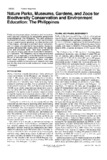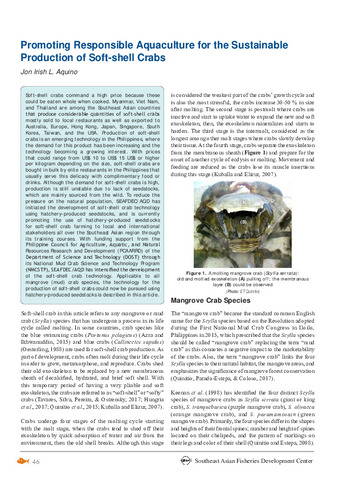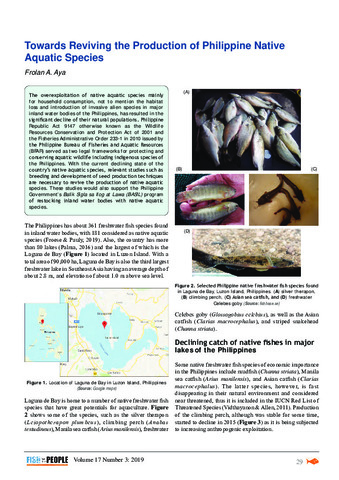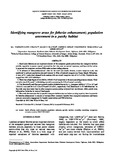Nature parks, museums, gardens, and zoos for biodiversity conservation and environment education: the Philippines
Share
trừu tượng
Public consciousness about biodiversity and the environment, and their importance for sustainable development is not widespread in the Philippines. This article advocates nonformal environment education through nature recreation as a means toward 'greening, the mind and the spirit of the citizens. Information is provided about biodiversity, and the status and potential of nature parks, museums, gardens, and zoos in the country. Many of the 116 national parks and protected areas have been exploited for products and energy, and only some provide for recreation-cum-education. The Philippines has no national botanical garden, zoo, or aquarium, and the National Museum is not the proud institution that it should be. Some universities have small museums, botanical gardens, and other biodiversity exhibits for instruction and research, but these and the few zoos and wildlife centers are poorly funded or managed.
Suggested Citation
Bagarinao, T. (1998). Nature parks, museums, gardens, and zoos for biodiversity conservation and environment education: the Philippines. AMBIO: A Journal of the Human Environment , 27(3), 230-237. http://hdl.handle.net/10862/1730
Chủ thể
Bộ sưu tập
- AQD Journal Articles [1249]
Related items
Showing items related by title, author, creator and subject.
-
Promoting responsible aquaculture for the sustainable production of soft-shell crabs
Aquino, Jon Irish L. (Secretariat, Southeast Asian Fisheries Development Center, 2018)Soft-shell crabs command a high price because these could be eaten whole when cooked. Myanmar, Viet Nam, and Thailand are among the Southeast Asian countries that produce considerable quantities of soft-shell crabs mostly ... -
Towards reviving the production of Philippine native aquatic species
Aya, Frolan A. (Secretariat, Southeast Asian Fisheries Development Center, 2019)The overexploitation of native aquatic species mainly for household consumption, not to mention the habitat loss and introduction of invasive alien species in major inland water bodies of the Philippines, has resulted in ... -
Identifying mangrove areas for fisheries enhancement; population assessment in a patchy habitat
Lebata, Ma. Junemie Hazel; Walton, Mark E.; Biñas, Joseph B.; Primavera, Jurgenne; Le Vay, Lewis (Wiley, 2012)- Small-scale fisheries are an important element of the ecosystem goods and services that mangrove habitats provide, especially to poorer coastal communities that rely most on natural resources, and have similar ...





